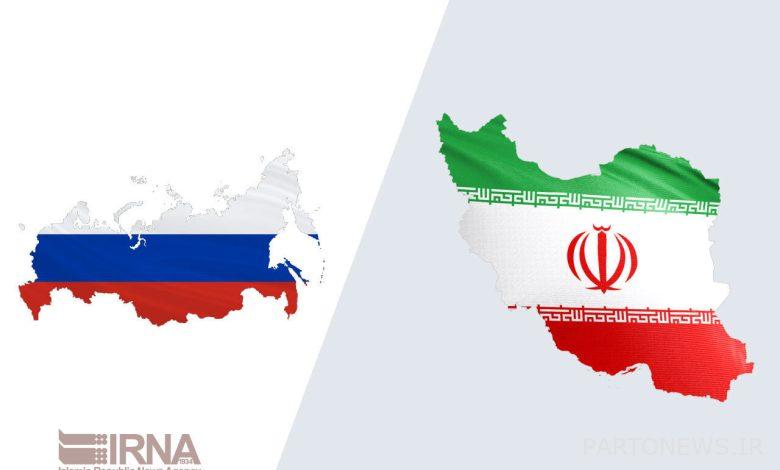American think tank report on Syria’s role in Tehran-Moscow relations

The website of the Center for International and Strategic Studies (CSIS) in a detailed report analyzing the situation in Syria and the evolution of cooperation between Tehran and Moscow in this country claimed: Russia’s entry into the conflict in Syria since 2015 is a major change in the domestic and field arenas Created. Russia, in cooperation with Iran, prepared the ground for victory and support for Syria. Although there were differences during this period, during the war in Syria, political and military exchanges between Moscow and Tehran intensified and cooperation increased.
Commenting on the military and political developments in Syria in recent years, the American think tank claims: “Although Russia and Iran have converged around the overall goal of strengthening the Syrian government, Moscow and Tehran’s involvement in Syria “It reports after the war.” Although the two sides have conflicting views on Syria’s political, military, and economic reforms, these issues will not lead to the failure of efforts and the separation of the three countries. The experience of close cooperation and sustained contacts between Tehran and Moscow has taught us how to address the growing challenges and resolution of post-war issues in Syria.
The experience of close cooperation and sustained contacts between Tehran and Moscow has taught us how to address the growing challenges and resolution of post-war issues in Syria.Iran initiative and the efforts of Martyr Soleimani
Russia’s entry into the Syrian issue was initiated by Iran and followed by (martyr Sardar) “Qassem Soleimani” in 2015. As Syria’s challenges to ISIS became apparent, (martyr) Sardar Soleimani left for Syria to confront them. Moscow then set up a joint intelligence center in Baghdad to coordinate policies on Syria.
“The cooperation between Tehran and Moscow was achieved with different goals in Syria,” said Nicole Grajowski, an analyst at the think tank and author of the report. From the beginning of its military operation, Moscow focused on reviving the Syrian army’s combat capability and sought to train a united and professional force. At the beginning of Russia’s entry into the issue, the challenge of coordination and integration of the two countries is obvious; But after the June 2016 trilateral meeting and the start of Iran’s air cooperation with Russia, it strengthened Syria’s position and achieved important victories.
According to this analysis, the differences between Iran and Russia have been exaggerated since then, but quick victories were achieved and large parts of Syria were liberated from ISIS and Bashar al-Assad’s power was consolidated. This facilitated Russia’s desire for a broader role in Middle East affairs, to the point that Moscow established itself as a superpower in the Middle East. These efforts were reinforced by the beginning of a process in which Turkey, along with Iran and Russia, participated. The creation of de-escalation zones was also able to facilitate the process of stability and political developments in Syria.
Gradually, Russian-Iranian coordination increased, and this coherence manifested itself in Operation Deir ez-Zor and in the tripartite attack on strategically important areas in the east, including the Baghdad-Damascus highway and the oil fields east of the Euphrates. Finally, in early September 2017 (September 2017), the three-year siege of the city was broken and facilitated the process of further victories in Iraq and Syria.
Despite Israeli and US pressure on Moscow, Russia is unlikely to be able to influence Iran’s position in Syria.Washington and Tel Aviv intervene in Iran-Russia cooperation
Since the beginning of 2018, despite the efforts of the United States and Israel, significant successes have been achieved in Iraq and Syria under the leadership of Iran. Although there was growing disagreement between Tehran and Moscow, security cooperation in Syria between the two countries continued. Of course, Russia’s presence did not prevent US airstrikes on Deir ez-Zor in support of Israel. At the same time, southern Syria, like Deir ez-Zor, became embroiled in a wider regional conflict between the United States, Russia and Israel.
According to the analysis, “Moscow entered into diplomacy with Tel Aviv as part of its balancing act, which led to the deployment of Russian military police in the Golan Heights. “Israeli pressure on Russia continued, and Moscow sought to limit groups against Russia.”
According to the report, in any case, despite Israeli and US pressure on Moscow, Russia is unlikely to be able to influence Iran’s position in Syria.
Iran and Russia work together to counter sanctions; The result of this approach is the ineffectiveness of Washington’s sanctions against Tehran and Damascus. This has been reinforced by the escalation of US sanctions against Russia and Caesar’s law.Syria, the beginning of a new cooperation between Tehran and Moscow
This analytical report on the future of developments in Syria also believes that the strengthening of Syria has made Russia and Iran more coordinated with each other through bureaucratic methods and military command structures, and this has contributed to the overall improvement of Tehran-Moscow relations and equipping the two sides for Tackling future challenges will also be effective.
Iran and Russia are now working together to counter sanctions; The result of this approach is the ineffectiveness of Washington’s sanctions against Tehran and Damascus. This has been reinforced by the escalation of US sanctions against Russia and Caesar’s law.
“Just as Iran and Russia have been able to resolve their differing views on Syria through military and bureaucratic channels, they can in the future determine each other’s areas of interest in Syria and their political and economic interests,” the Harvard Belfer Center analyst concluded. Follow yourself in this country.
Russia’s relations with Iran demonstrate Moscow’s ability to formulate a foreign policy based on cooperation and de-escalation, which has clearly resulted in Syria. “Tehran and Moscow have so far been able to strengthen and expand their relations by using common experiences in Syria.”
.

